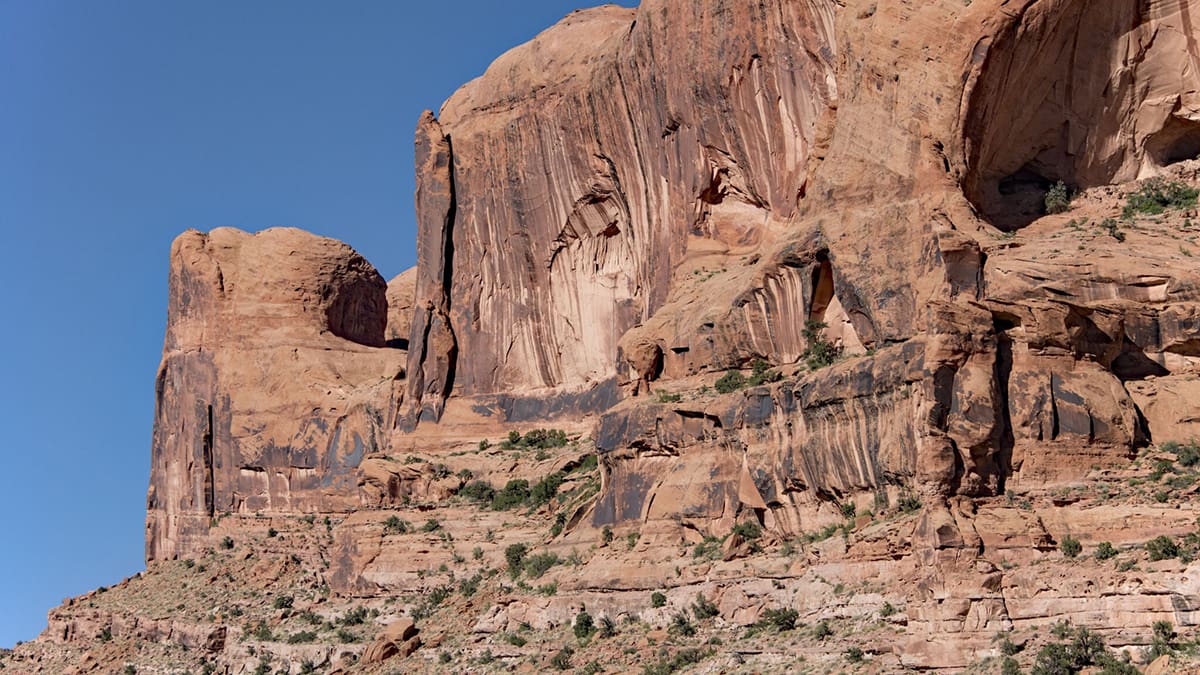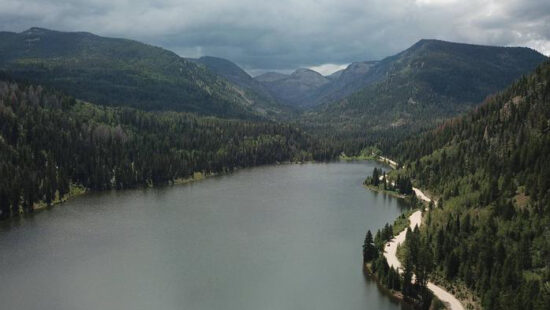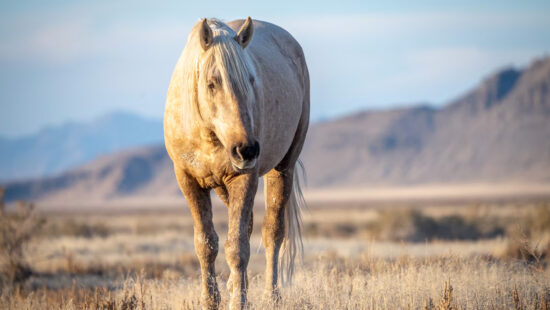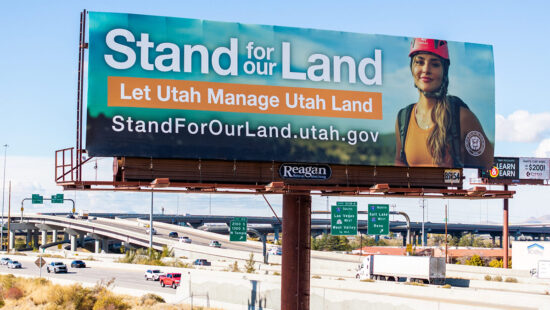Politics
BLM revives controversial oil and gas lease in Utah wilderness, prompting lawsuit

Sandstone Cliff, Walls of Labyrinth Canyon, Moab, Utah. Photo: Arthur Grumankin via Getty Images
By Kyle Dunphy, Utah News Dispatch
SALT LAKE CITY, Utah – A number of oil and gas leases in southern Utah, one of which was so controversial that seven Democratic U.S. senators urged the federal government to cancel it, are now the subject of an environmental lawsuit.
Filed Wednesday by the Southern Utah Wilderness Alliance, an environmental nonprofit, the lawsuit is the latest in a yearslong saga surrounding oil and gas development in Emery County and what is now the Labyrinth Canyon Wilderness Area, just north of Canyonlands National Park.
In the complaint, the group alleges the federal government violated the National Environmental Policy Act and the Administrative Procedure Act when it reaffirmed 35 oil and gas leases in southern Utah earlier this year — among them, the lease located in the heart of Labyrinth Canyon Wilderness near the Green River.
The lawsuit names the U.S. Department of Interior, Bureau of Land Management, or BLM, and Christina Price, BLM Utah’s deputy state director for lands and minerals.
A spokesperson for the BLM told Utah News Dispatch it could not comment on ongoing litigation, but they “encourage the public’s involvement and feedback in all forms.”
The leases in question date back to former President Donald Trump and his “energy dominance” policies, a series of executive orders that, among other things, directed the U.S. Department of Interior to revise its rules and regulations to boost domestic oil and gas production.
That included an attempt to speed up the approval for oil and gas leases, a move that was applauded by some politicians and companies for easing the regulatory burden, but criticized by environmental groups like the Southern Utah Wilderness Alliance for making public participation more difficult.
One of the leases was located in Labyrinth Canyon. In February 2019, BLM issued the lease, and one month later, the John D. Dingell, Jr. Conservation, Management, and Recreation Act was signed into law, a massive omnibus public lands bill that designated swaths of Utah as wilderness areas, including Labyrinth Canyon.
Had the law been signed a month earlier, the lease would have been invalid, as it would be located in a wilderness area where oil and gas production is not allowed. That timing drew the ire of environmental groups and several U.S. senators, who wrote to then Deputy Secretary of the Interior David Bernhardt that the BLM “rushed to issue this lease in February 2019 with full knowledge that the public lands it encompassed were set to be designated as Wilderness.”
“These oil leases threaten environmentally sensitive and culturally rich lands throughout Utah that Congress has worked to protect. Given the significance of these lands, we request you cancel these leases,” the senators wrote.
The letter, sent on Dec. 21, 2020, was signed by Democratic Sens. Richard Durbin of Illinois; Martin Heinrich of New Mexico; Dianne Feinstein of California; Debbie Stabenow of Michigan; Tammy Baldwin of Wisconsin; Jeff Merkley of Oregon; and Cory Booker of New Jersey.
“That’s not common. U.S. senators don’t weigh in that often on a specific oil and gas lease,” said Landon Newell, an attorney for the Southern Utah Wilderness Alliance.
The day before Christmas Eve in 2020, as Trump was leaving office, the BLM issued a decision allowing an operator, Twin Bridges, to drill on the parcell. Environmental groups sued to stop the decision, but a court allowed the operator to proceed. According to the lawsuit, “the well turned out to be a dry hole and was subsequently plugged and abandoned.”
SUWA filed an amended complaint, and in 2022 the BLM agreed to prepare an additional environmental analysis for the other leases, a process that included a public comment period. In May, the BLM reaffirmed the legitimacy of the 35 leases.
“By reaffirming these leases — including in the heart of the Labyrinth Canyon Wilderness — the Biden administration is blessing one the Trump administration’s most controversial oil and gas leases,” Newell said.
That May decision is now the subject to the most recent lawsuit. In the 38-page complaint, attorneys for SUWA say federal agencies violated the National Environmental Policy Act, or NEPA, because they didn’t fully analyze the impact the leases could have on the area.
What’s more is the Biden administration has spent considerable time revising Trump’s “energy dominance” policy, questioning its legitimacy and legality, the complaint reads — yet the Biden administration reaffirmed a decision that stems from policies it now claims were illegitimate.
And, the lawsuit argues that the BLM failed to give a “reasoned explanation” for its decision to reverse course on policies that once prevented oil and gas leases from being issued in the area, a violation of federal law.
The complaint asks the court to “set aside and vacate the thirty-five leases at issue in this litigation.”



















